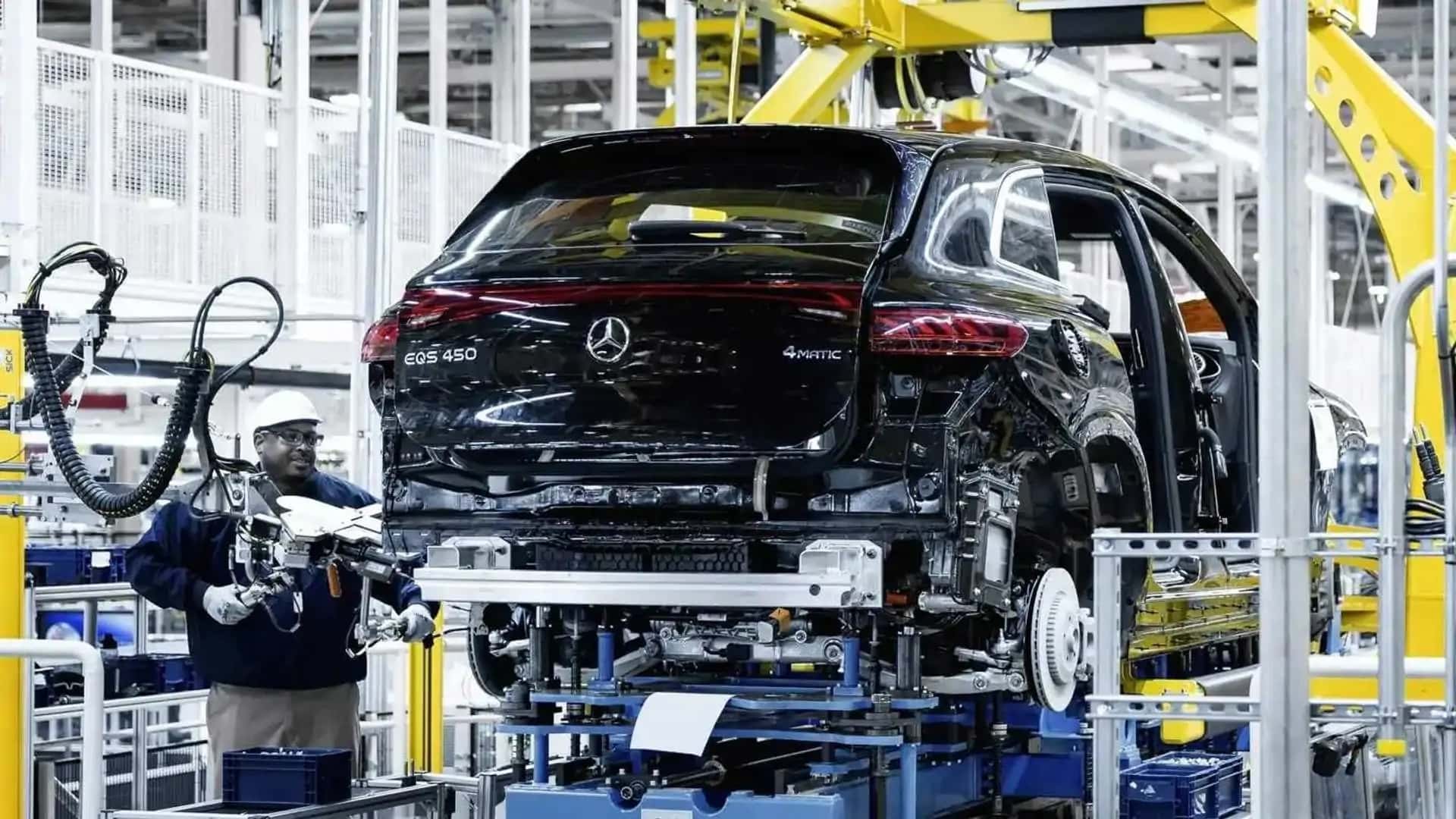Mercedes-Benz Halts Production of First-Generation EQ Models in the U.S.
Mercedes-Benz has announced a temporary pause in the production of its first-generation EQ electric vehicles (EVs) in the United States. This decision comes as the automaker shifts focus toward future EV models that align more closely with consumer expectations and market demands.
The production halt, effective from September 1, will impact all variants of the EQE and EQS sedans and SUVs. These models are no longer available for new orders, and dealers have been informed that the order banks for these vehicles are now closed. However, any vehicles scheduled for production before the deadline will still be manufactured.
This move is part of a broader strategy by Mercedes-Benz to adapt to changing market conditions. The company emphasized its global approach, stating that it continuously optimizes its production network to respond quickly to evolving trends. The decision also coincides with the expiration of the U.S. federal EV tax credits on September 30, following the passage of President Donald Trump’s budget bill.
Challenges Faced by the EQ Line
Despite their advanced technology and long range, the EQ models struggled to gain widespread appeal. Critics often pointed to their design as a major drawback. The ultra-streamlined shapes of the EQS and EQE were seen as lacking the traditional elegance and gravitas associated with Mercedes-Benz luxury vehicles. This design choice, combined with concerns over interior quality, led to declining sales.
Sales of the EQS sedan and EQS SUV dropped by 52% in the U.S. in 2024 compared to the previous year. Analysts believe this decline was exacerbated by the upcoming end of the EV tax credits, which could further dampen demand for EVs once they expire.
A New Direction for Mercedes EVs
In response to these challenges, Mercedes-Benz is rethinking its EV strategy. The company is shifting toward producing battery-powered versions of its popular models, such as the G-Class and CLA-Class. This approach aims to combine the brand’s heritage with modern electric technology.
The new electric CLA-Class sedan and wagon has already been unveiled, showcasing the brand’s commitment to blending style with performance. A new electric GLC SUV is also set to debut later this year or in early 2026. These models are expected to offer a more familiar design while incorporating the benefits of electric propulsion.
What This Means for Buyers
For those who have been waiting to purchase an EQE or EQS, the time to act may be limited. While production has paused, these models remain available for purchase through dealerships. Additionally, the used market offers attractive deals for buyers looking to acquire a high-quality EV at a lower cost.
Mercedes-Benz continues to invest in its EV portfolio, signaling a long-term commitment to the electric vehicle market. As the industry evolves, the company is positioning itself to meet the needs of consumers with innovative and appealing electric models.
Future Outlook
The automotive landscape is rapidly changing, and Mercedes-Benz is adapting to stay competitive. With a renewed focus on design, performance, and affordability, the brand is well-positioned to lead in the electric vehicle segment. As more models hit the market, consumers can expect a wider range of options that cater to different preferences and budgets.







